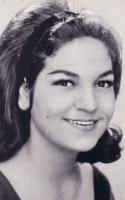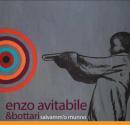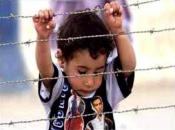Aux clochers de Jérusalem
Je voudrais voir en même temps
Briller à l'aurore prochaine
La croix, l'étoile et le croissant.
Aux campaniles de Sardaigne,
Aux mosquées de l'Afghanistan,
Je voudrais tant un jour que règnent
La croix, l'étoile et le croissant.
Il y a aux rives anciennes
Beaucoup d'amour et trop de sang,
Où sont-ils donc tous ceux qui aiment
La croix, l'étoile et le croissant ?
Ils ont pris des sentiers de haine,
Dieu sait pourquoi ils ont voulu
Aller jusqu'au bout de leurs peines,
Bientôt ils ne le voudront plus
Aux clochers de Jérusalem
Je voudrais voir en même temps
Tous ceux qui portent au fond d'eux-mêmes
La croix, l'étoile et le croissant
Et ceux qui n'ont jamais eu même
De croix, d'étoile ou de croissant.
Je voudrais voir en même temps
Briller à l'aurore prochaine
La croix, l'étoile et le croissant.
Aux campaniles de Sardaigne,
Aux mosquées de l'Afghanistan,
Je voudrais tant un jour que règnent
La croix, l'étoile et le croissant.
Le coeur des hommes est fait pour danser
Sur des manèges de colombes,
Sur des collines d'oliviers.
Sur des manèges de colombes,
Sur des collines d'oliviers.
Il y a aux rives anciennes
Beaucoup d'amour et trop de sang,
Où sont-ils donc tous ceux qui aiment
La croix, l'étoile et le croissant ?
Ils ont pris des sentiers de haine,
Dieu sait pourquoi ils ont voulu
Aller jusqu'au bout de leurs peines,
Bientôt ils ne le voudront plus
Le coeur des hommes est plein de danger
Ils s'offrent au jour mais il y pousse
Toute fleur que l'on a semée.
Ils s'offrent au jour mais il y pousse
Toute fleur que l'on a semée.
Aux clochers de Jérusalem
Je voudrais voir en même temps
Tous ceux qui portent au fond d'eux-mêmes
La croix, l'étoile et le croissant
Et ceux qui n'ont jamais eu même
De croix, d'étoile ou de croissant.
inviata da Jacky Fluttaz - 31/10/2023 - 00:48
Lingua: Italiano
Traduzione italiana / Traduction italienne / Italian translation / Italiankielinen käännös:
Riccardo Venturi, 31-10-2023 11:53
Riccardo Venturi, 31-10-2023 11:53
La croce, la stella e la mezzaluna
Sui campanili di Gerusalemme
Vorrei vedere, al tempo stesso,
Brillare alla prossima aurora
La croce, la stella e la mezzaluna.
Sui campanili [1] di Sardegna,
Sulle moschee dell’Afghanistan,
Vorrei tanto regnassero un giorno
La croce, la stella e la mezzaluna.
Ci son sulle antiche rive
Tanto amore e troppo sangue,
Ma dove sono tutti coloro che amano
La croce, la stella e la mezzaluna?
Hanno imboccato sentieri d’odio,
Dio sa perché hanno voluto
Salir fino in cima alle loro pene,
Presto non lo vorranno più.
Sui campanili di Gerusalemme
Vorrei vedere, al tempo stesso,
Tutti coloro che si portan dentro
La croce, la stella e la mezzaluna,
E anche chi non ha mai neanche avuto
Una croce, una stella o una mezzaluna.
Sui campanili di Gerusalemme
Vorrei vedere, al tempo stesso,
Brillare alla prossima aurora
La croce, la stella e la mezzaluna.
Sui campanili [1] di Sardegna,
Sulle moschee dell’Afghanistan,
Vorrei tanto regnassero un giorno
La croce, la stella e la mezzaluna.
Il cuore degli uomini è fatto per danzare
Su giostre di colombe,
Su colline di oliveti.
Su giostre di colombe,
Su colline di oliveti.
Ci son sulle antiche rive
Tanto amore e troppo sangue,
Ma dove sono tutti coloro che amano
La croce, la stella e la mezzaluna?
Hanno imboccato sentieri d’odio,
Dio sa perché hanno voluto
Salir fino in cima alle loro pene,
Presto non lo vorranno più.
Il cuore degli uomini è pieno di pericolo,
Si offrono alla luce, ma ci cresce sopra
Ogni fuore che è stato seminato.
Si offrono alla luce, ma ci cresce sopra
Ogni fuore che è stato seminato.
Sui campanili di Gerusalemme
Vorrei vedere, al tempo stesso,
Tutti coloro che si portan dentro
La croce, la stella e la mezzaluna,
E anche chi non ha mai neanche avuto
Una croce, una stella o una mezzaluna.
[1] Nella canzone viene fatta distinzione tra il termine normale francese per "campanile, torre campanaria", clocher, e campanile, italianismo che si usa soltanto in riferimento ai campanili italiani.
Lingua: Inglese
English translation / Traduzione inglese / Traduction anglaise / Englanninkielinen käännös:
maëlstrom (L. Trans.)
maëlstrom (L. Trans.)
The Cross, the Star and the Crescent
At the church towers in Jerusalem
I wish I would see in the same time
The cross, the star and the crescent
Shining in the next dawn/dusk
At the bell towers in Sardinia
At the mosques in Afghanistan
How I wish I could see one day the reign of
The cross, the star and the crescent
At the ancient shores is
Much love and too much blood
When are all those who love
The cross, the star and the crescent ?
They took paths of hatred
God knows they wanted
To go till the end of their sorrow
Soon, they won't want it anymore
At the church towers in Jerusalem
I wish I would see in the same time
All those who wear, deep inside them
The cross, the star and the crescent
And even those who've never even had
A cross, a star or a crescent.
At the church towers in Jerusalem
I wish I would see in the same time
The cross, the star and the crescent
Shining in the next dawn/dusk
At the bell towers in Sardinia
At the mosques in Afghanistan
How I wish I could see one day the reign of
The cross, the star and the crescent
Man's heart is bound to dance
On roundabout made out of doves
On hills with olive trees
On roundabout made out of doves
On hills with olive trees
At the ancient shores is
Much love and too much blood
When are all those who love
The cross, the star and the crescent ?
They took paths of hatred
God knows they wanted
To go till the end of their sorrow
Soon, they won't want it anymore
Man's heart is full of danger
It offers itself to the sun, but there
Grows every flower that was sowed
It offers itself to the sun, but there
Grows every flower that was sowed
At the church towers in Jerusalem
I wish I would see in the same time
All those who wear, deep inside them
The cross, the star and the crescent
And even those who've never even had
A cross, a star or a crescent.
×
![]()






Testo / Paroles / Lyrics / Sanat: Eddy Marnay
Musica / Musique / Music / Sävel: Jean-Michel Braque
"Une chanson des années 70 toujours d'une grande actualité" [JF]
La canzone fu scritta nel 1969 dal grande e prolifico paroliere Eddy Marnay (pseudonimo di Edmond Bacri, nato a Algeri il 18 dicembre 1920 e morto il 3 gennaio 2003); gli si attribuiscono oltre 4000 canzoni, da Édith Piaf a Céline Dion. La canzone fu incisa l’anno successivo da Frida Boccara, cantante ebrea marocchina di origine italiana, nell’album Les quatre chemins de l’amour. Si segnala che il compositore della musica è il fratello di Frida Boccara, Roger Boccara, che utilizzava lo pseudonimo di Jean-Michel Braque. Frida Boccara era nata il 29 ottobre 1940 a Casablanca; la sua famiglia era di origine livornese. E' morta a Parigi per un'infezione polmonare il 1° agosto 1996, a soli 55 anni. Cantava in tredici lingue. [RV]